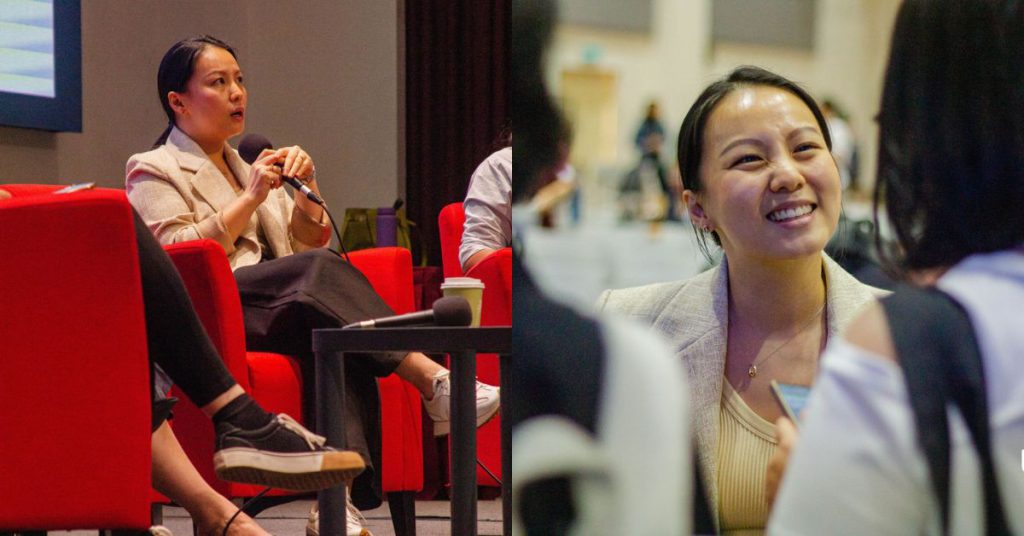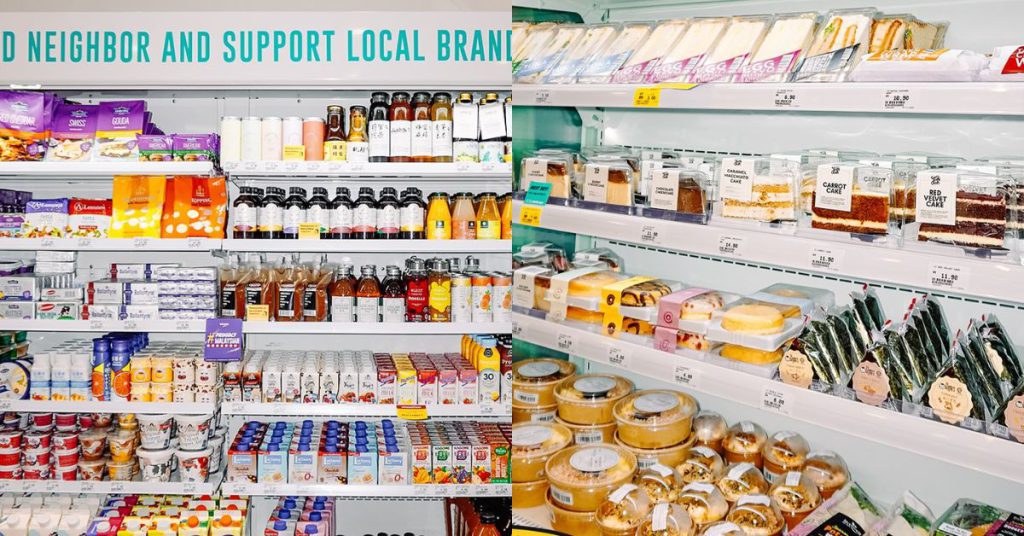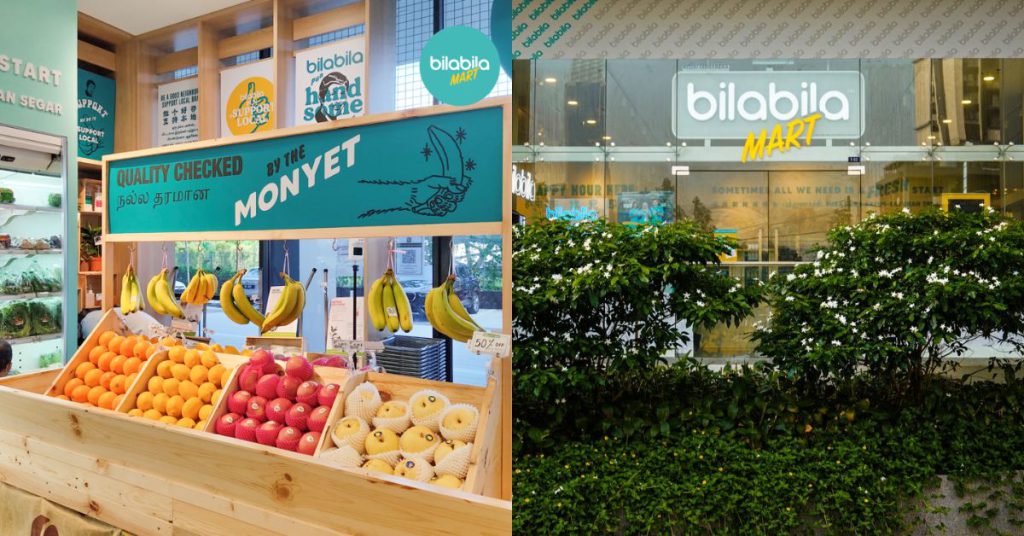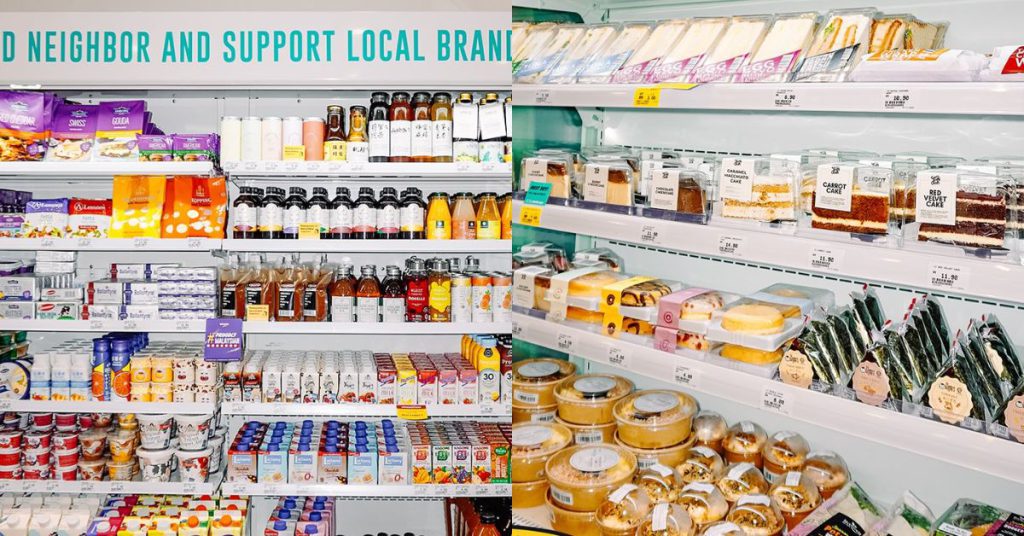From 7Eleven to Family Mart, Malaysia is not short of convenience stores. One homegrown option that has popped up is BilaBila Mart.
For a while, the founders behind this business remained elusive. In our coverage of them in 2021, we just mentioned they were three unnamed friends with backgrounds in sales and marketing.
Since then, the team has grown out of their shells, and we now know that one of the three friends is none other than Lee Hui Jing, who you may know as EY’s Woman Entrepreneur of the Year in 2023.

I first met her at Malaysian Pay Gap’s Work Slayer Summit, where she was a guest on a panel entitled “Never too Late: How To Switch Career?”.
There, she shared how she formally started her career in British American Tobacco (BAT) before becoming an insurance agent, then eventually venturing into entrepreneurship.
But that’s just her condensed resume. Beyond those job titles, Hui Jing’s life has been quite the storied one, starting with her childhood.
A journey of character-building
Due to financial circumstances, Hui Jing began working at the tender age of 15. She opened up about her father, who had gotten the family into some debt.
“It’s really like what you see in the dramas,” she recalled. “We were locked up and held ransom.”
Experiencing this, Hui Jing decided to earn her own pocket money instead of asking for it from her mum.
Since the legal working age was 16, the teen faced a lot of rejection before landing a role at a boutique for RM4 an hour.
“Not a very pleasant experience, but it gave me a first overview to how people doing business can be,” Hui Jing shared.
She went on accumulate more experiences, such as working in McDonald’s and The Body Shop, becoming a tutor, qualifying as a finalist for the Red Bull Female Driver Search in 2009, and joining a radio station as a road runner.
After all these odd jobs, she delved into the tobacco industry—something she said was contradictory to her character.
“It’s very male-dominated, and it’s a sin industry,” she explained. “And I was very anti-smoking.”
But the money was good, so Hui Jing gave it a try. Here, she climbed the corporate ladder, leveraging her core skills in sales. Eventually, though, she felt it was time for her to leave and explore.

Thus, she took the plunge into becoming an insurance agent—which also meant giving up a stable income. As an insurance agent, Hui Jing had zero basic salary, but she said that it prepared her for the life of an entrepreneur.
A kedai runcit was not her initial plan
Yet, BilaBila Mart is not her first venture. While still working as an insurance agent, a friend had approached her, wanting start a mart business together.
“When the business was doing well, I asked, ‘What happened to the conversation about giving me a share?’ Then they were like, ‘You know what? As a female, you better not talk so much. You [should] ask your husband to feed you’,” she remembered. “I was appalled.”
Hence, she quit the business and started another company with her husband along with a business partner. They also secured Exsim Group, a property development company, as an investor.
The idea with BilaBila Mart at first was to be a Malaysian version of FamilyMart, meaning it would have a range of hot foods.

“I really wanted to have something of my own,” she said about launching the mart. “But starting this business at first was very scary, because the only businessperson I was really exposed to at the time was my father. And what I saw was only failure.”
Her anxiety worsened when, two days after BilaBila Mart opened, the national lockdown was announced. She remembered being at the store when the lockdown started. “I looked at my rack full of things and there was no footfall, and really, I wanted to cry.”
Yet, she persevered. Realising she needed to make a move or let BilaBila Mart die a slow death, she posted pictures of the store’s hygiene-related products on Instagram. Boosting the post, she began getting inquiries for deliveries.
For months, she was on Instagram daily, answering messages personally to fulfil orders. It wasn’t enough to cover expenses, but it showed her how to cater to market demands. Based on customers’ requests, they went on to sell produce, sauces, and even cigarettes.
From there, BilaBila Mart grew into its current kedai runcit model, embracing the role of a modernised and localised mini market.
Finding a market gap
Not just serving customers, BilaBila Mart also addresses a sweet spot for small, homegrown brands, as it waives fees for such businesses.
She shared that an entrepreneur recently told her that to get into a specific well-known convenience store, they had to pay an opening account fee of around RM19,000.

There was also an 8% charge to hold stock at the distribution centres, and listing fees of about RM50 per SKU per outlet.
“So, before you can even do business at this store, you have to fork out RM300,000,” she said.
Because of this, Hui Jing believes a lot of interesting local brands can’t make it onto retail shelves—a pain point they’re addressing.
This is a win-win, as customers get more variety too. Being a regular of the mart myself, I enjoy being able to buy anything from sandwiches and cakes to pork and wine.
“It comes at a cost, because our profit margins to do that is not very high,” Hui Jing explained. “But we want to provide that variety.”

In terms of future plans, Hui Jing teased that the business is doing R&D to possibly introduce unique products to the market. She also shared that in April or May, they plan on launching a conceptual signature store that may feature more collaborative projects.
For now, the chain is still quite centralised in the Klang Valley, but their Lazada and Shopee stores enable them to ship nationwide. They hope to physically expand to more locations in the future.
Pivoting to grow
Regarding career pivots, Hui Jing shared that she often just looks at big-picture goals, rather than fuss over nitty gritty details.
“If I go too in-depth, I know I will not take action,” she admitted. “I think a lot of people fall into that trap.”
She said that if your heart is in it, you should just do it. Of course, broad calculations should be done, such as what your monthly commitments are and how many months’ worth of savings you have.

“I think a lot of us magnify our problems, but the problem can be very petty,” she said. “If insurance really didn’t work out with me back then, so what? Just go back to corporate. Our problems are not as big as we think they are.”
Hui Jing is no stranger to overthinking her problems, though. She said that growing up, she never shared about her experiences as she thought it may tarnish her family’s reputation. That’s why she didn’t expose herself in the beginning of BilaBila Mart.
“At the back of my mind, I thought, ‘Do I really want to tell my story?’ Because it’s also my mother’s story,” she explained.

However, having seen the business’ growth over the years, Hui Jing believes her and her mum gotten over the fear.
Thus, Hui Jing has started sharing her story to more people, her biggest (physical) audience yet being at the Work Slayer Summit. Through her sharing, she found that she has been able to inspire more people—including myself.
Both Hui Jing and BilaBila Mart tell a story of perseverance. They were not victims, but rather victors of their circumstances.
- Learn more about BilaBila Mart here.
- Read other articles we’ve written about Malaysian startups here.
Featured Image Credit: BilaBila Mart

